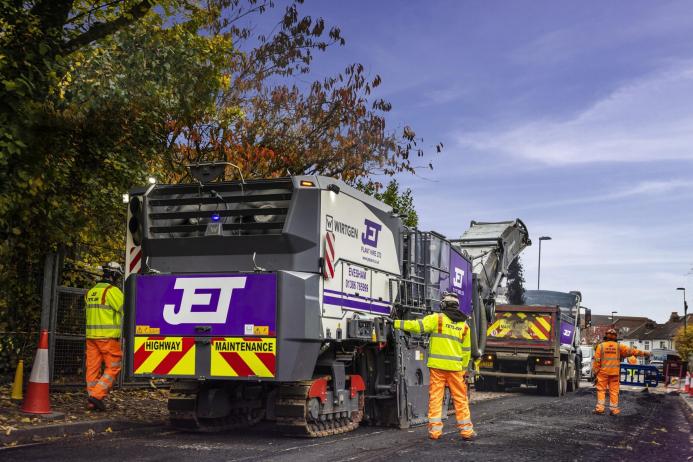Jet Plant Hire set the standard for management of road planings
Evesham-based firm adds its own strict criteria to the management of non-hazardous planings
NON-hazardous planings have been covered by waste regulations for some time, and adherence to these regulations has been mixed across the highways industry. Jet Plant Hire Ltd, however, have taken compliance a step further by adding strict rules to manage non-hazardous planings.
With a reputation for delivering high standards in all areas of its business, the management of road planings is no exception for the company. Jet are well-known throughout the industry for pushing the boundaries and going the extra mile in terms of safety and compliance.
Currently, it is a legal requirement for all movements of road planings to be documented in a set format and only transferred to a location registered with the Environment Agency. And these records have to be transparent and remain available.
According to Jet, road planings have a value and this has ‘blurred’ the perception of them being a waste and instead being considered a product. The Environment Agency are very clear that they can only become a product after they have been through an approved, controlled process.
Anyone not producing, moving, or disposing of road planings under the Environment Agency waste regulations is acting illegally and is at risk of prosecution and substantial penalties.
Jet’s comprehensive paperwork ensures meticulous tracking of every step in the planing process. From removal by the onsite team, to driver responsibility and sign-off by the end user, the national road-planing contractor ensures strict compliance, providing complete transparency and accountability throughout the process.
The company goes out of its way to ensure that every planing sales customer has all the relevant and correct permit/WEX (waste exemption) documentation. In the event they do not have one then Jet will raise one on their behalf, ensuring that all sites are legally compliant.
Jet’s management team also guarantees complete traceability of all materials, tracking their journey from origin to destination. By carefully tracking the origin of planings and potential destinations on Google Maps, as well as minimizing travel distances for repurposing, Jet also significantly reduce vehicle carbon emissions.
By repurposing 100% of road planings – hazardous or not – Jet say they are actively recycling and aiming to help conserve natural resources, which aligns with their strong environmental responsibility goals.
Tina Greenhill, business improvement director at Jet, commented: ‘We’re proud to be completely transparent with everything we do at Jet. We aim to lead the way in terms of the way things should be done, not because we have to, but because we want to.
‘All deliveries of road planings are accompanied by a waste transfer note (WTN) to account for all planings. Even though it’s not a legal requirement, we complete a WTN for any planings that are left on site to ensure everything is traceable.
‘If any non-compliant tickets are found, the driver is reminded of the requirements, and refresher training is carried out where necessary. WTN compliance is one of our environmental objectives and is recorded and discussed at our monthly environment meetings.’










